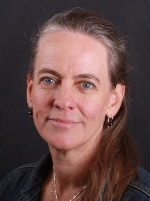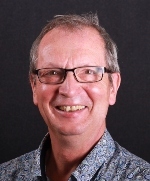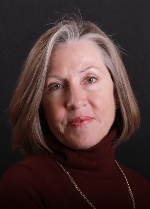Our Number Two Choice
University of Alberta BFA of Acting
About U of A
For those seeking a more academically focused route, the University of Alberta offers students a Bachelor of Fine Arts in Acting. Students must provide proof of a few one-year academic pre-requirements, including English credits and a minimum grade average of C-. To make things as convenient as possible, the University of Alberta provides a Drama program where students can complete their pre-requirements before beginning their BFA. It should be noted that there are multiple campuses, so future students have options as to where they
complete their courses. Potential students can learn about the program’s additional requirements at the university’s website, and Fine Arts undergraduate advisors are available to speak to prospective students to help them learn how to best set themselves up for
acceptance.
About U of A
For those seeking a more academically focused route, the University of Alberta offers students a Bachelor of Fine Arts in Acting. Students must provide proof of a few one-year academic pre-requirements, including English credits and a minimum grade average of C-. To make things as convenient as possible, the University of Alberta provides a Drama program where students can complete their pre-requirements before beginning their BFA. It should be noted that there are multiple campuses, so future students have options as to where they
complete their courses. Potential students can learn about the program’s additional requirements at the university’s website, and Fine Arts undergraduate advisors are available to speak to prospective students to help them learn how to best set themselves up for
acceptance.
Auditions are Required
Before students are accepted, they must also take part in an audition process. These auditions require potential students to present monologues, a movement piece, and a song excerpt. Additional aspects of the audition process might include some improvisation and script reading, as well as a personal interview. The university provides auditions via Zoom if auditioning in person is not an option.
Once accepted, students will participate in a “conservatory training program” for three years. The program is described as “intensive” and includes a wide array of skills. Some of the exciting and crucial topics covered by the program are:
-Effectively participating in an ensemble (this includes the important skill of learning how
to be respect all aspects of the ensemble).
– Developing a character’s psychology, image, voice, etc.
– Becoming comfortable with a variety of performance locations.
– Becoming skilled at cultivating a strong performance presence.
– Both contemporary and classical theory.
– And more!
Who Are the Instructors at University of Alberta?

Beau COLEMAN
A theatre director and multidisciplinary artist specializing in interdisciplinary performance creation, contemporary performance and revisioning the classics. Her international artistic practice is one of continual movement between various art disciplines, encompassing the mediums of theatre, performance art/live art, site-specific performance, digital media, dance, video and installation.

Dr. Selena COUTURE
Research focuses on Canadian Indigenous Theatre, Performance and Decolonizing practices; Land, Place Names and Performance; Indigenous Language Revitalization Practices; Colonial Performance and the Construction of Whiteness; Archival Practices, the Repertoire and Historiographic Method; Resource Extraction and Refusal

Dr. Piet DEFRAEYE
Primary Teaching Areas: Dramatic Theory, Introduction to Theatre Arts, Play Analysis. Graduate Seminars in Production Dramaturgy, Audience Reception Theory, Brecht, Research Tools. Graduate Supervision

Dr. Melanie DREYER-LUDE
Research areas: International theatre collaboration, bilingual performance, interdisciplinary art projects using multiple modalities, Ugandan performance techniques, Performance as Research, Educational Leadership and Policy Analysis, directing, acting, producing.
Auditions are Required
Before students are accepted, they must also take part in an audition process. These auditions require potential students to present monologues, a movement piece, and a song excerpt. Additional aspects of the audition process might include some improvisation and script reading, as well as a personal interview. The university provides auditions via Zoom if auditioning in person is not an option.
Once accepted, students will participate in a “conservatory training program” for three years. The program is described as “intensive” and includes a wide array of skills. Some of the exciting and crucial topics covered by the program are:
-Effectively participating in an ensemble (this includes the important skill of learning how
to be respect all aspects of the ensemble).
– Developing a character’s psychology, image, voice, etc.
– Becoming comfortable with a variety of performance locations.
– Becoming skilled at cultivating a strong performance presence.
– Both contemporary and classical theory.
– And more!
Who Are the Instructors at University of Alberta?

Beau COLEMAN
A theatre director and multidisciplinary artist specializing in interdisciplinary performance creation, contemporary performance and revisioning the classics. Her international artistic practice is one of continual movement between various art disciplines, encompassing the mediums of theatre, performance art/live art, site-specific performance, digital media, dance, video and installation.

Dr. Selena COUTURE
Research focuses on Canadian Indigenous Theatre, Performance and Decolonizing practices; Land, Place Names and Performance; Indigenous Language Revitalization Practices; Colonial Performance and the Construction of Whiteness; Archival Practices, the Repertoire and Historiographic Method; Resource Extraction and Refusal

Dr. Piet DEFRAEYE
Primary Teaching Areas: Dramatic Theory, Introduction to Theatre Arts, Play Analysis. Graduate Seminars in Production Dramaturgy, Audience Reception Theory, Brecht, Research Tools. Graduate Supervision

Dr. Melanie DREYER-LUDE
Research areas: International theatre collaboration, bilingual performance, interdisciplinary art projects using multiple modalities, Ugandan performance techniques, Performance as Research, Educational Leadership and Policy Analysis, directing, acting, producing.
